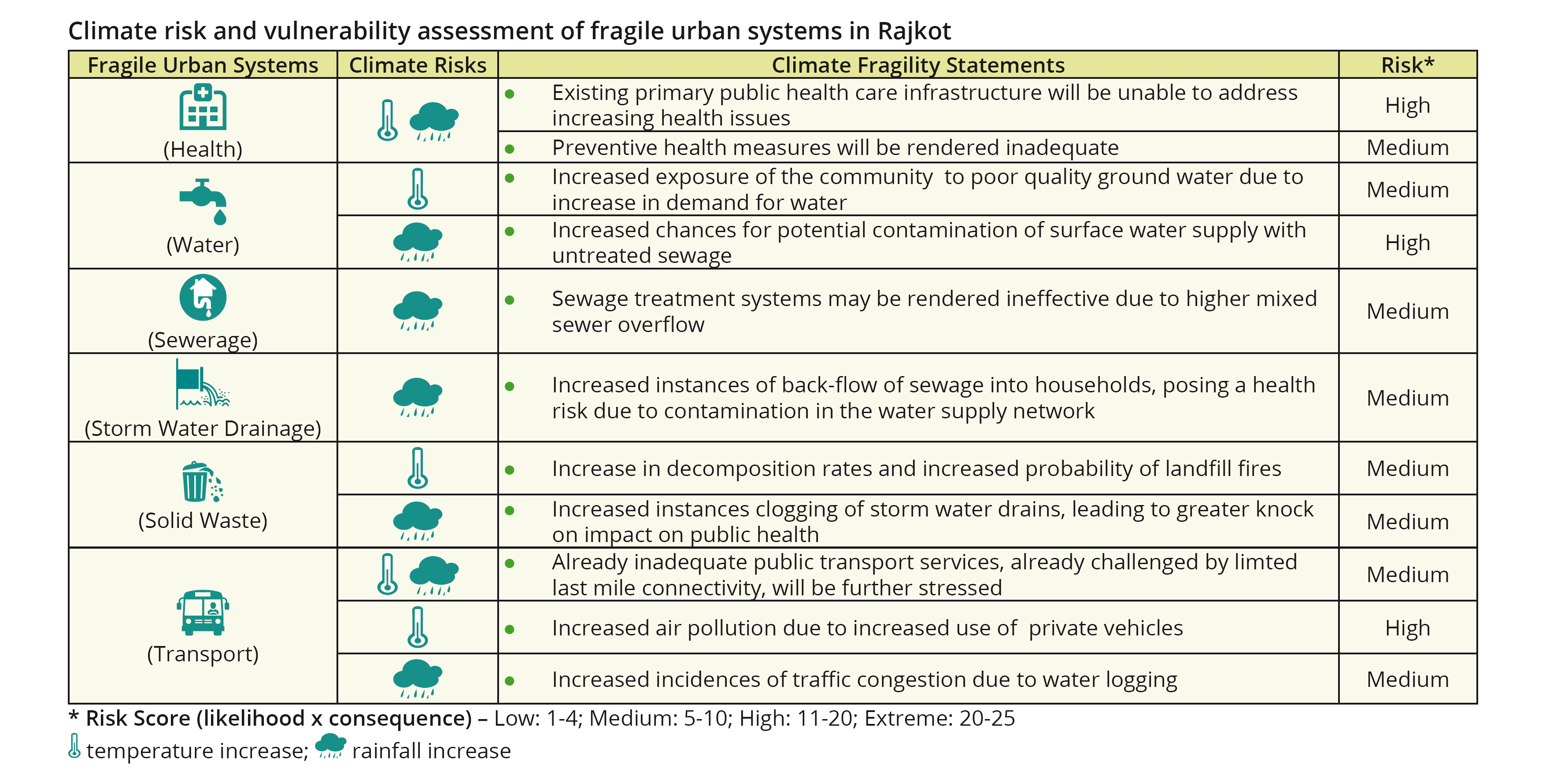 GOVERNMENT
OF INDIA
GOVERNMENT
OF INDIA
Please login using your email address as it is mandatory to access all the services of community.data.gov.in
 GOVERNMENT
OF INDIA
GOVERNMENT
OF INDIA
In line with national priorities, the CapaCITIES* project aims to strengthen the capacities of Indian cities to identify,plan and implement measures for reducing Green House Gas (GHG) emissions and for enhancing resilience to climate change in an integrated manner.
Climate Risk/Vulnerability Assessment
Rajkot undertook a project with CapaCITIES which uses the ClimateResilientCities methodology and addresses both climate change adaptation and climate change mitigation.
The process is a 9-step process in 3 phases: Analyse, Act and Accelerate; outlining how climate fragility can be assessed and climate resilient options (to achieve low emissions development and climate adaptive development) can be identified and integrated into urban development policies, plans and processes. It consists of a wide range of tools and guidance notes to support Local Governments to deliver effective local climate actions.
In line with this, a GHG emissions inventory was developed to determine sources of GHG emissions in local government operations and the whole community using the HEATplus GHG inventory online software tool (http://heat.iclei.org)and protocols.GHG emissions: During 2015-16 Rajkot had 1.88 million tonnes of carbon dioxide equivalent (tCO2e), translating to an average per capita GHG emission of 1.32 tonnes of CO2e, which is less than India’s per capita GHG emission 1.56 tCO2e for the year 2010.
Also, the impacts of climate change faced by city were examined through Shared Learning Dialogues (SLDs) with the Climate Core Team and Stakeholder Team. An assessment of the past climate trends and future climate projections was conducted through secondary research. Basic information regarding past weather data (temperature and precipitation data) for the city was collected, which helped to understand the trends and patterns in temperature and precipitation.
Vulnerability Assessment
The baseline situation analysis of the urban systems in the city has been carried out in Rajkot.Vulnerability of each of the systems to climate change impacts of increase in temperature and increase in precipitation, were assessed and climate risk was analysed. Water, sewerage, health, solid waste management, and transportation were identified as vulnerable urban systems. Vulnerability of wards and actors was also analysed for each of these urban systems. Vulnerability maps were then prepared and overlaid together to identify the vulnerability hotspots.
Climate risk and vulnerability assessment of fragile urban systems in Rajkot

Vulnerability by sectors and wards
Climate Resilient City Action Plan
Using the data generated through multiple assessments as listed above, a comprehensive Climate Resilient City Action Plan has been developed.
A snapshot of the Climate Resilient City Action Plan
The Climate Resilient City Action Plan (2018-2023) proposes actions with an annual GHG emission mitigation potential of 23% by 2022-23, over the 2015-16 (financial year) baseline.
*Funded by the Swiss Agency for Development and Cooperation (SDC), the project consortium consists of South Pole Group (Switzerland), ICLEI – Local Governments for Sustainability, South Asia, and econcept (Switzerland).The Consortium works in close collaboration with several other partner organisations / international experts, together forming the project Implementation Agency (IA).